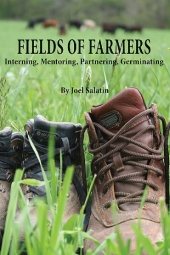
 3
3





Since its publication by Sierra Club Books in 1977, The Unsettling of America has been recognized as a classic of American letters. In it, Wendell Berry argues that good farming is a cultural development and spiritual discipline. Todays agribusiness, however, takes farming out of its cultural context and away from families. As a result, we as a nation are more estranged from the land—from the intimate knowledge, love, and care of it.
“The soil is the great connector of lives, the source and destination of all. It is the healer and restorer and resurrector, by which disease passes into health, age into youth, death into life. Without proper care for it we can have no community, because without proper care for it we can have no life.”
― Wendell Berry, The Unsettling of America: Culture and Agriculture
 2
2




"We're all just walking each other home." -Ram Dass
"Be a lamp, or a lifeboat, or a ladder."-Rumi
"It's all one song!" -Neil Young
 1
1




aloha pumehana,
smith
 2
2




Realize your potential by simplifying your life.
"Learn how to see. Realize that everything connects to everything else."
~ Leonardo Da Vinci




 We lost quite a few books to the 'woods' when we first moved here...I still prefer a book to a computer screen though!
We lost quite a few books to the 'woods' when we first moved here...I still prefer a book to a computer screen though!
"We're all just walking each other home." -Ram Dass
"Be a lamp, or a lifeboat, or a ladder."-Rumi
"It's all one song!" -Neil Young
 2
2




Zone 5/6
Annual rainfall: 40 inches / 1016 mm
Kansas City area discussion going on here: https://www.facebook.com/groups/1707573296152799/
 3
3




"Study books and observe nature; if they do not agree, throw away the books." ~ William A. Albrecht

 2
2




Christ is Risen!

|
This is my favorite show. And this is my favorite tiny ad:
paul's patreon stuff got his videos and podcasts running again!
https://permies.com/t/60329/paul-patreon-stuff-videos-podcasts
|









